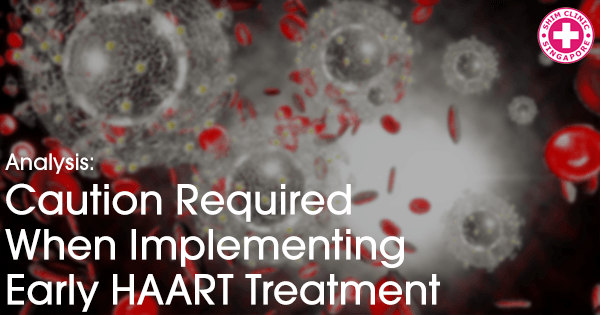Studies have indicated that Highly Active Antiretroviral Therapy (HAART) reduces HIV viral loads to undetectable levels. This then reduces transmission rates, slows down progression to AIDS and improves the life quality of HIV victims. This success has led to the recommendation that HIV patients receive HAART.
Further studies show that patients who received HAART early survive much longer. However, there are other studies that discourage use of early HAART in resource-limited groups because it increases chances of developing early drug resistance due to low adherence thus reducing treatment efficiency.
Conflicting Research Conclusions
Other studies have shown that HAART does not prevent HIV transmission among some Men having Sex with Men (MSM) and Injecting Drug User (IDU) groups. All these conflicting research conclusions point out the need to have a further in-depth study of issues relevant to the efficacy and implication of early HAART especially among special groups in resource-limited settings.
With this information in mind, a group of researchers led by Xiaodan Sun from the Department of Applied Mathematics, Xi’an Jiaotong University, China conducted a study addressing these issues. The study used reported data from previous Chinese MSM studies.
In their study, they took a look at the impact of HAART by examining the time when HAART is initiated, emergence of drug resistance and efficacy of treatment on new infections. This was with the intention to determine whether and when early HAART treatment should be implemented for MSM populations.
The researchers ran individual-based simulations of two dynamics models – within-host viral dynamics and between-host transmission dynamics in the MSM group of up to a 25-year period. The study used literature that involved an MSM population consisting gay men aged between 15 and 64 years. The simulation method was used to investigate contributions at primary, asymptomatic and AIDS stage.
Results of the Study
Based on the simulations, the researchers observed that if treatment effectiveness remains high even after the emergence of drug-resistant strains, early initiation of HAART is useful in controlling new HIV infections, therefore curbing transmission of the disease. However, in cases where the emergence of drug-resistant viruses causes the reduction in treatment efficacy, introducing early treatment will result in higher HIV prevalence and more deaths. This implies that the impact, whether positive or negative, of early HAART largely depends on the emergence of drug resistance.
From these observations, the researchers recommend that early initiation of HAART be administered with great care, more so in settings where drugs that are currently known to be the most effective are not available. This is especially true in areas of China where only second-line treatment drugs are available. The researchers thus concluded that early treatment using HAART could lead to more cases of infection, depending on how efficient the treatment continues to be after the emergence of drug resistance.
Our Take
It’s clear that drug resistance is a big factor to take into account when deciding to implement early HAART. However, There’s also a clear advantage in initiating early HAART. Just like the researchers, we feel a lot of care and precaution will be required when deciding to implement early HAART to prevent the emergence of resistant strains of HIV.
Prevention Is Still Better Than Cure
While there are numerous studies on finding better treatment and of course ultimately a cure for HIV, we still believe prevention is better than cure. If you live a lifestyle that is high-risk sexually, visit Shim Clinic frequently for STD testing, especially for a HIV test if you believe you have been exposed. There are also more pro-active prevention methods such as HIV PEP, which you can use within 72 hours after exposure to prevent infection.
Read the full study here: http://journals.plos.org/plosone/article?id=10.1371/journal.pone.0150513

